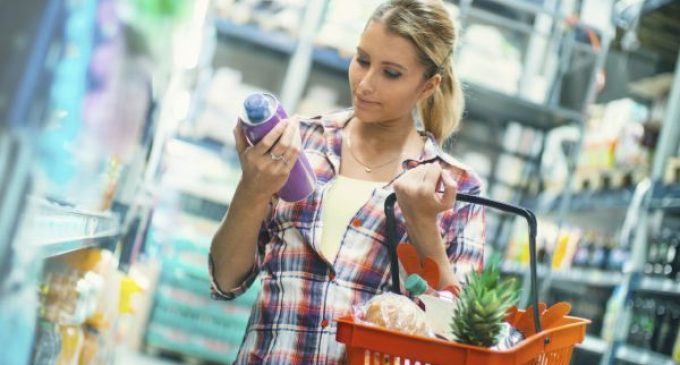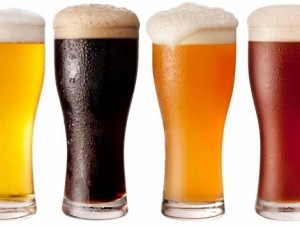Well-off British Consumers Bankroll the Good Life

Jet-setting, gourmet dining and sparkling wine – new research from Mintel finds that certain markets are flourishing as a result of the UK’s two-track recovery. Indeed, as higher earners are feeling better-off, they’re indulging themselves by spending on experiences and enjoying themselves. Holidays, leisure and entertainment are all doing well, while the recession-era ‘lipstick effect’ is fading.
Indeed, Mintel research finds that the two-track recovery is still very much alive and kicking. Almost four in 10 (38%) of those with a household income of £50,000 or over say they feel better off compared to a year ago, compared to just 16% of those with an income of under £9,500.
Ina Mitskavets, Senior Consumer and Lifestyles Analyst at Mintel, says: “Britain’s economic growth over the last few years has outstripped many other major economies, and wages have been rising above inflation. Whilst there has not been a big improvement in overall consumer confidence, better-off Britons are clearly pulling away from the rest. Higher earners feel more confident about their finances and show more willingness to spend across more indulgent categories, such as leisure, holidays and foodservice. The term ‘lipstick index’ refers to people’s tendency to buy smaller ‘feelgood’ treats instead of spending on larger-ticket items. However, as people’s incomes have picked up, there is less need to spend in this fashion.”
The findings come as Mintel launches its flagship ‘British Lifestyles’ report, which tracks spending across all major consumer markets. Overall, the research found that total consumer expenditure in the UK reached £1,126 billion in 2015, representing an increase of 1.7% on 2014. The uplift in spending comes as some are feeling more prosperous: one in four (26%) Brits say they are better off compared to a year ago. Meanwhile, over half (53%) say they’re about the same, whilst one in five (20%) say they are worse off.
Highlights from the 2016 report include:
Rise in scratch cooking whips up sales of groceries, whilst sales of milk are soured by supermarket price wars
Value sales in the in-home food market edged up 1.5% year on year in 2015 to reach £77.1 billion. With close to a fifth (18%) of consumers saying they’ve increased their spending on in-home food over the past year, Mintel research shows that the rise of cooking from scratch and emphasis on healthy eating is having a fruitful effect on the market. Three in 10 (29%) consumers are cooking at home from scratch more than they were a year ago, and sales of herbs, spices and seasonings grew by 3% in 2015 to reach £344 million. Meanwhile, sales of stocks have also benefitted, growing by 9% in the same time period to reach £139 million.
On the other hand, the supermarket price wars, Mintel estimates, wiped more than £200 million off the value of the dairy drinks, milk and cream market in 2015. Despite the falling milk prices, half (51%) of those who drink standard cow’s milk say they’d be prepared to pay over £1.00 for a four-pint bottle of milk.
 The rise of the ‘everyday foodie’ plates up success for gourmet foodservice venues
The rise of the ‘everyday foodie’ plates up success for gourmet foodservice venues
The UK is still very much a culinary nation, with the foodservice market reaching an estimated £36 billion in 2015, serving up a rise of nearly 3.5%. And Mintel research finds that restaurant critics should be watching their backs, as one in three (34%) diners today considers themselves to be a ‘foodie’, while over half (57%) of diners say that they like to experience new flavours.
As a result, gourmet offerings helped sizzle up success in burger and chicken restaurants in 2015. Whilst 7% of fast-food visitors say they have switched from fast food restaurants to gourmet burger restaurants, this helped grow spending in the overall chicken and burger bar market by 5% in 2015 to reach £4.7 billion.
Juice market squeezed as the war on sugar rages
Along with cordials and squashes, fruit juices and smoothies appear to have been hit by consumer concerns over sugar, with the non-alcoholic drinks market seeing growth of just 1% in 2015. One in nine (11%) UK adults are buying less fruit juice or smoothies compared to six months before, 34% of those buying less/not buying are doing so because of concerns over sugar, compared to 24% who have done so to save money.
It’s plain sailing as a result, however, for sales of bottled water, which are estimated to have grown by 5% in 2015. Overall, bottled water sales grew by 29% in value and 25% in volume terms between 2010-15.
 Quality over quantity mindset causes sales of sparkling wine and craft beer to fizz
Quality over quantity mindset causes sales of sparkling wine and craft beer to fizz
With 28% spending less on alcoholic drinks out of home and 22% doing so in-home, it seems that when Brits do decide to spend, they prefer to treat themselves. This is reflected in the market’s performance in recent years – while volume growth has largely stagnated, value sales continued to rise, reaching £43 billion in 2015.
Notably, volume sales of sparkling wine grew by 14% in 2015 to reach 107 million litres (£1.3 billion). What’s more, ‘craft’ labels are continuing to boost sales of beer, with the beer market worth £16.7 billion in 2015. Around one in six (16%) Brits bought craft lager in the three months to November 2015, whilst 18% purchased a craft ale/bitter.


































